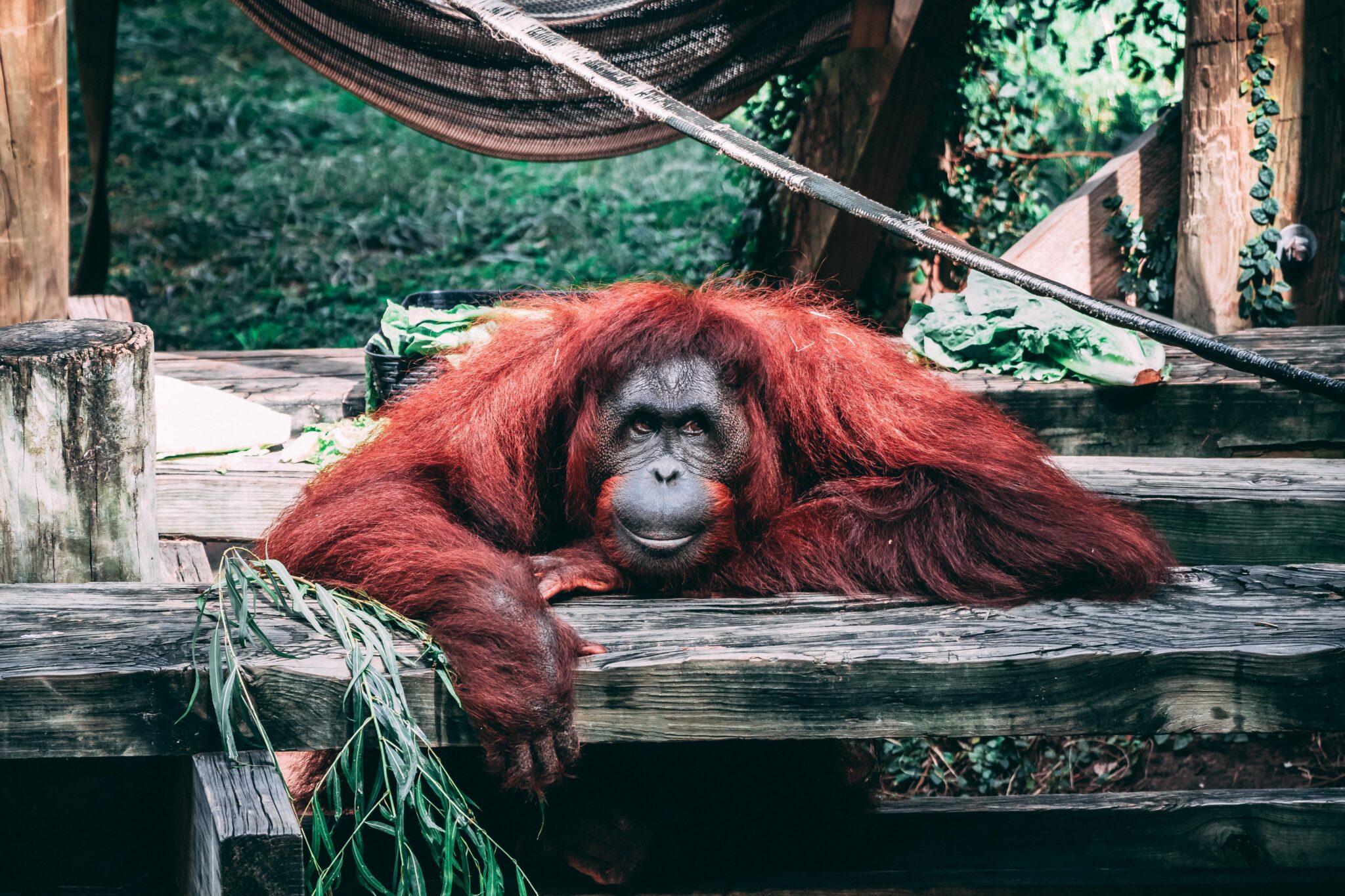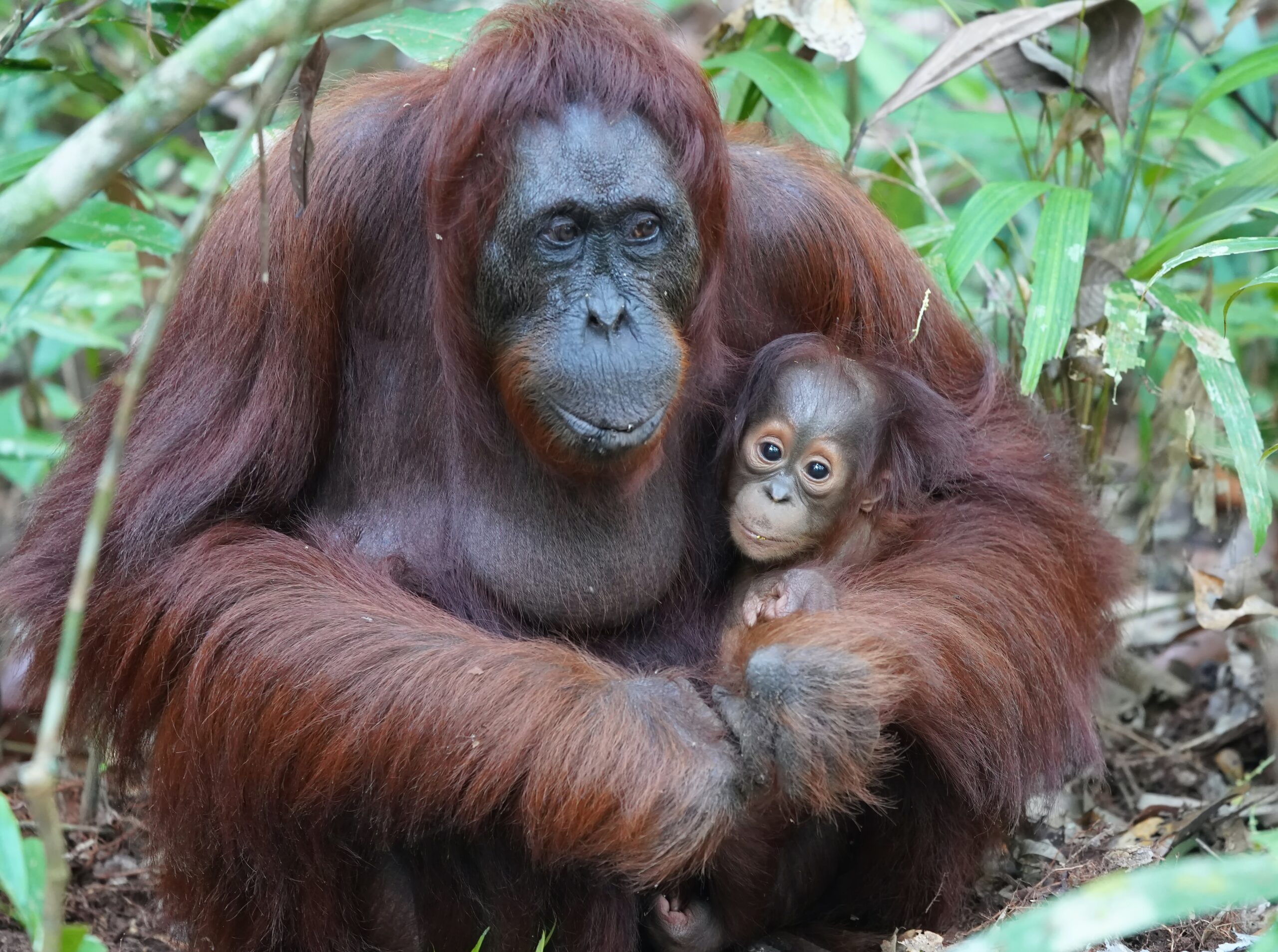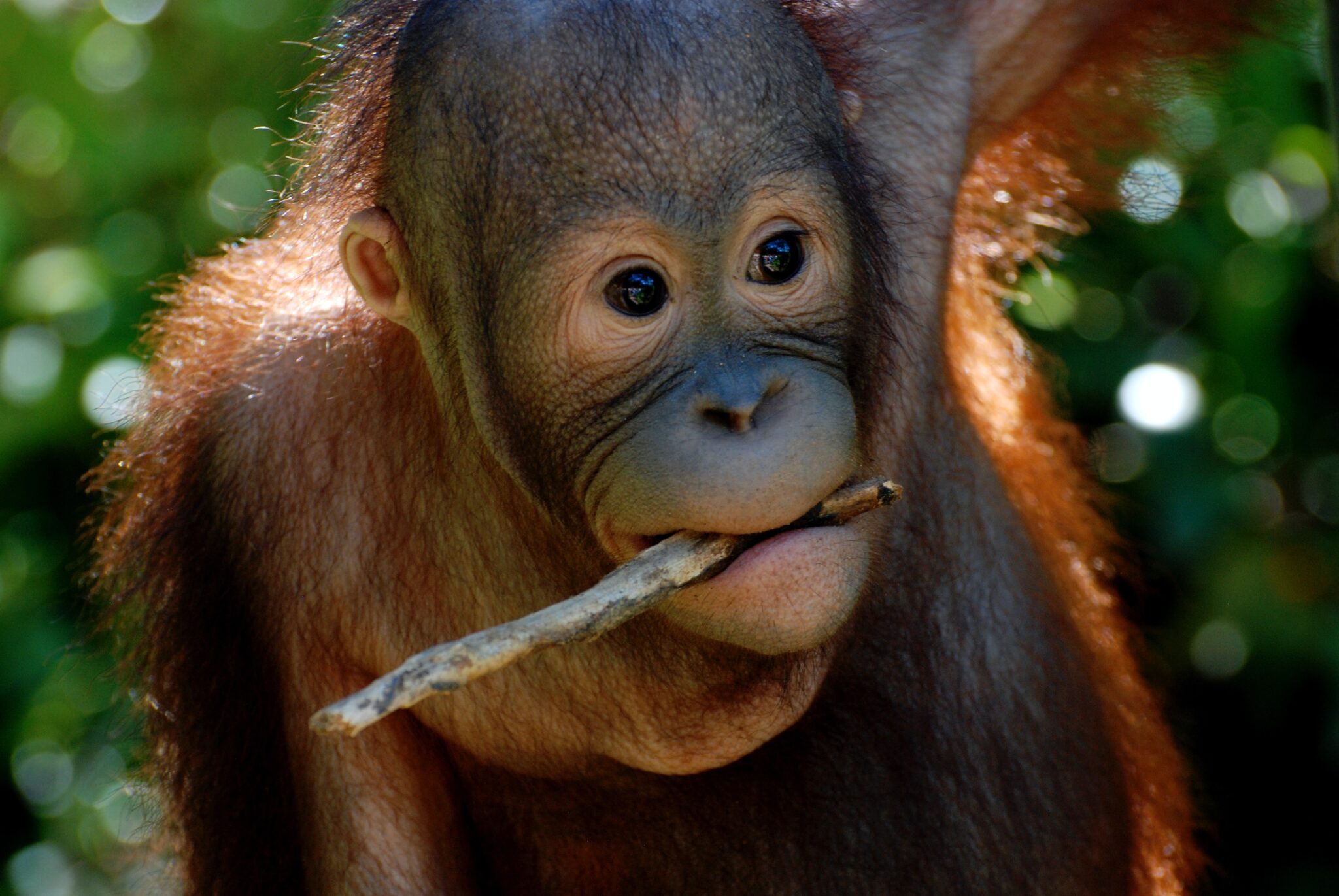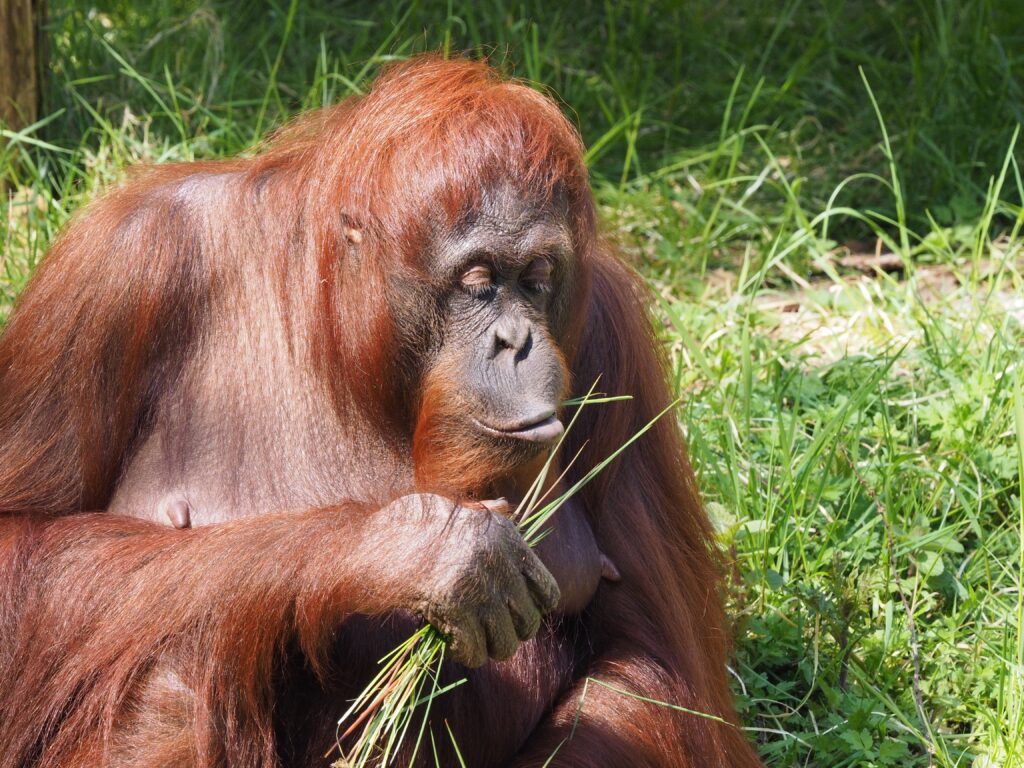Q&A Blog | World Orangutan Day
Anne Russon
Check out this World Orangutan Day Q&A blog with Dr. Anne Russon as she delves into her experiences being a Canadian psychologist and primatologist! She is also a researcher and professor of psychology at York University focusing her efforts on learning and intelligence in ex-captive Bornean Orangutans!
Q&A Blog
Published August 19, 2022
HoN Thumbnail and Title Background Image: https://leakeyfoundation.org/2014research-report-ranging-and-diet-in-e-bornean-orangutans/
How did your background in psychology enhance your skills in observing Orangutans?
My studies of orangutans were originally all about psychological processes (e.g. social learning, imitation, problem-solving) and psychology provides good training in observing, recording, and interpreting behaviour.
As a researcher, what in your opinion are the essential qualities needed to work with orangutans successfully?
With wild orangutans, the aim is not to engage with orangutans – they are formerly endangered – i.e., at imminent risk of extinction in the wild – because humans hunt and kill them and we can infect them with life-threatening human diseases. In addition, researchers do not want to affect their behavior – researchers are interested in seeing their normal behavior. So the point as an orangutan researcher is to be like a fly on the wall – clearly present, but of no interest or importance to the orangutan(s). Even that requires considerable “habituation”: wild orangutans typically hide or flee if they see unknown humans, so researchers have to be very patient, sensitive, and persistent. They have to try, try, and try again to ‘approach’ each individual wild orangutan while behaving in the most innocuous fashion possible, until (hopefully) that orangutan considers the researchers unimportant and gets back to his/her normal daily activities.

You have extensive experience as an academician and a researcher. What challenges did you encounter during your research work?
Orangutan live primarily in Indonesia, so I had to learn to speak, read, and write Indonesian and to adjust to Indonesian culture (very different from western cultures) – more flexible and accommodating, less direct in speaking/interacting, more hierarchical (status really matters). I also had to figure out how to live in the Bornean forests (e.g., stock up on mosquito repellant, anti-malarial and other medications to protect against tropical diseases, find and buy suitable field clothing – tough trousers and shirts, rain gear, hats, backpacks, find and buy suitable research gear (e.g., regular and video cameras, camera traps, binoculars) for myself and for my research team, develop effective ways or recording the data I needed to answer the questions that interested me, and deal with the bureaucracy involved in getting permission to do research as a foreigner. And of course I had to find, hire, and train, local field research assistants.
Although orangutans have been studied extensively over the past several decades, do you believe the general public still has misconceptions about orangutans?
Of course – nobody has correct conceptions about phenomena they have not studied, lived with, or worked with extensively. They are not suitable or even legal as pets, for example, even if baby orangutans are very cute. Neither should they be captured and trained to do tricks for humans’ entertainment – despite the fact that there is still a lot of inappropriate ‘orangutan entertainment’ available.

In a paper authored by you, Orangutan Rehabilitation and Reintroduction (2008), you discussed rehabilitation practices and post-release support for Orangutans. Are there any advancements in rehabilitation practices and systematic monitoring since the publication of the above-mentioned paper?
Yes there have been advances since that paper was published (I probably wrote it 15+ years ago). I don’t do research on rehabilitant orangutans these days so I don’t keep track of the changes, but their rehabilitation programs have become much more professional and better informed than they were when I first started to study rehabilitation (1989). One excellent example is medical care – there is now a very impressive organization called OVAG (the Orangutan Veterinary Advisory Group) that has done a very impressive job of improving medical training and medical practices with orangutans (you can check them out – they have their own website). Pre-release training, the location of release sites, and post release monitoring have also improved.
Your research throws light on the cognition of orangutans in a very cogent style. In what way do orangutans provide wisdom to human beings in the area of social cognition such as compassion, cooperation and co-existence?


Along with research, you support orangutan conservation efforts as the executive director of the Borneo Orangutan Society of Canada and a member of other orangutan support organizations. What advice would you give the youth to make efforts in saving the population of critically endangered orangutans?
Read as much “good” information about orangutans as you can so you are well informed, do not support human activities that exploit orangutans (e.g., zoos, circuses, movies, or any other ‘entertainment’ using orangutan actors). You can also contribute to campaigns against businesses that threaten orangutans and/or their remaining wild habitat (e.g., oil palm plantations, mining for gold, coal, or gemstones in orangutan habitat) and in fact any human activities that threaten remaining wild orangutans and their habitat. You can also donate to NGOs and charitable organizations that work to inform people about orangutans and to protect them. BOS canada is one, there’s also the Orangutan Conservancy in the US, and I’m sure you can track down other such organizations elsewhere. Just make sure you check them out before you decide whether to support them.
What inspirational message would you give young women to inspire and encourage them to pursue STEM?
I guess I’d say that women can have very important and fascinating roles to play in these areas, which were traditionally considered more “male”. I started in math and science, ended up in psychology, and that led me into areas that are often associated with biology or anthropology. So young women should consider all these areas ‘open’ to them if they’re interested, and there’s lots of room to branch out into other (often related) areas as their interests and needs develop and change over time. We are just as good as the men – better in some circumstances (as they are better in others) – so go for it!
